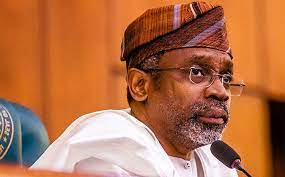Speaker of the House of Representatives Hon Femi Gbajabiamila has extolled the rescilience and doggedness of his colleagues in the 9th House for passing so many landmark legislations and other achievements in the lifespan of the out-going 9th National Assembly.
Gbajabiamila made the remarks in a speech at the valedictory session to mark the end of legislative activities of the 9th House of Representatives in the National Assembly of the Fourth Republic of Nigeria’s democracy.
He said that over the last four years, the House has worked to ensure that our country can overcome challenges and take advantage of the moment to achieve economic, social, and political transformations that benefit all the Nigerian people.
He said: “We elevated the debates in the House of Representatives and made this chamber the arena for informed exchanges about Nigeria’s future and the welfare of all our nation’s people.
“We have left our mark in every sector of our national life and positively impacted people’s lives across our country.
“We introduced discipline into the appropriations process by implementing a January to December budget cycle that ended the policy instability and economic uncertainty of the previous irregular budget cycles.
“We reformed the oversight process to ensure greater collaboration between the arms of government. We made it easier for citizens to access details of budget expenditures so that they, too, can be part of the process of ensuring accountability in the administration of public funds.
“We did not yield our constitutional obligation to ensure faithful compliance with the letter and spirit of the Appropriation Act by the Ministries, Departments and Agencies of the government.
The number four citizen of Nigeria further stated that while the strategic importance of the oil and gas sector to Nigeria’s socioeconomic well-being has long been apparent, successive administrations failed to put in place a functional statutory regime to allow that sector to function optimally.
He said that the House had ended that legacy of lethargy with the passage of the Petroleum Industry Act (PIA).
He also said that with the Deep Offshore and Inland Basin Production Sharing Contracts Act, they went even further to put the sector on the right footing.
According to him, these statutory reforms rightfully ought to have happened a long time ago. Nontheless, they must ensure that the reforms contained in these Acts are dutifully implemented as part of a broader energy policy suited to the realities of technological advancements and the evolving demands of the global energy market.
He also hinted that the pariament passed the Police Act to change the nature of relations between the police and citizens in our country and ensure that police officers who fall short of their responsibilities can be quickly held accountable.
The Act he said expressly prohibits police officers from arresting citizens for civil wrongs, imposes an obligation on the police to inform citizens of their rights at the point of arrest, and mandates the police to ensure that persons arrested have access to their families and legal representation.
Moreover, the Act established the Police Complaints Units as a statutory organ accessible to the public to report police misconduct and empowered to initiate action when such reports are received.
He however noted that these reforms did not end police misbehaviour in our country soon enough, there was a national reckoning. We responded by working with the Nigeria Bar Association (NBA) to establish a new framework of accountability to hold erring members of the Police Force to account for their conduct in the performance of their duties and compel the Nigerian Police Force (NPF) to take responsibility for the failures of training and discipline that leads to such wrongful conduct.
He also hinted that the House appropriated the sum of Five Hundred Million Naira through the National Human Rights Commission (NHRC) to compensate victims of police brutality nationwide.
He added that he sincerely hope that the work of police reform will continue in the House of Representatives until we achieve a system of policing that meets our nation’s needs and reflects the best of of the members of the House.
On the outbreak of the dreaded Covid-19pandemic, he said that the House of Representatives responded by taking active measures to protect the Nigerian people, including those who work in the National Assembly.
He further said that the House passed the Emergency Economic Stimulus Bill to grant companies a rebate on Companies Income Tax, suspend import duties on medicines, medical equipment, personal protective equipment, and other essential medical materials and defer mortgage obligations on residential mortgages by contributors to the National Housing Fund.
The lawmakers he also stated passed the Emergency Relief and Assistance Bill to provide a limited salary guarantee for low-income permanent employees of companies registered and operating in Nigeria, relieve legal consumers of electricity in Nigeria of the burden of electricity charges for a limited period and suspend for a fixed period, the implementation of the Value Added Tax (VAT) provisions of the Finance Act 2020.
The Speaker said that while these legislations did not pass in the Senate and never became law, they provided the framework for the federal government’s policy response to the pandemic, as the policy ideas contained therein were adopted and variously implemented through executive orders and subsequent legislations.
He thanked the members of the House for their cooperation and support during his tenure of office and assured them of continued collaboration in legislative-executive relations in the 10th National Assembly.
He also thanked the President Sen.Bola Ahmed Tinubu for finding him worthy to be appointed the Chief of Staff CoS to the President and the constituents of Surulere 1 Federal Constituency of Lagos State for the opportunity to serve them for twenty years as their representatives in the apex legislative Institution in Nigeria.
9th House of Reps winds down
The 9th House of Representatives has wound down, with the last plenary of the parliament held on Wednesday adjourned sine die (indefinitely).
The House held its valedictory session on Wednesday, which the outgoing Speaker, Femi Gbajabiamila, presided over.
Leaders and members of the House spent about three and a half hours that the session lasted to recall major events recorded in the chamber in the last four years.
In attendance were former presiding and principal officers of the House, including Ghali Na’Abba, Patricia Etteh, Babangida Ngoroje, Mulikat Akande-Adeola, among others.
Etteh spoke on behalf of the ex-lawmakers, after which Gbajabiamila presented 9th House membership certificates to members, starting with the Deputy Speaker, Ahmed Wase.
The Speaker noted that it was the first time in the history of the National Assembly that certificates would be issued to outgoing members.
At the close of the session, Gbajabiamila asked the Majority Leader, Alhassan Ado-Doguwa, to move a motion for the House to adjourn sine die. It was seconded by the Minority Leader, Ndudi Elumelu.
Gbajabiamila put the motion to voice vote, which the lawmakers unanimously adopted.
The 10th National Assembly is billed for inauguration on Tuesday

























